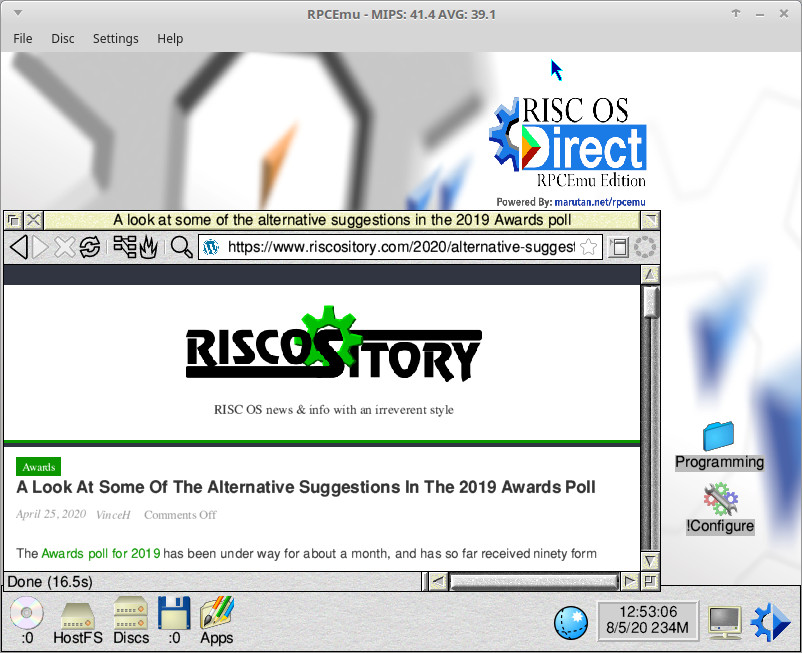A new version of RPCEmu has been released, offering an easy way to get up and running if you haven’t used RPCEmu before – and if you wish, to try out RISC OS Direct without needing a Raspberry Pi.
As with any release, version 0.9.3 of the emulator includes a number of changes – and although this is a point release from 0.9.2, so most of those changes are corrections and fixes, there is also a more significant change in how the software is provided; there are now Easy-Start bundles. These come in two flavours, depending which version of RISC OS you wish to run – RISC OS 3.71 or RISC OS Direct (5.27) – and allow you to get up and running with RISC OS on your host platform of choice with as little difficulty as possible.
It should be noted that the easiest platform to use is Windows, since that version contains everything you need; just download the relevant file from the RPCEmu website, and install the software by copying the contents of the zip file to where you want it. If you are using a Linux-based system, however, you will still need to download and compile the software from source (instructions are provided on the website), and then copy the Easy-Start bundle into place. It’s a little more involved, and requires use of the command line – but if you’re using a Linux system, you’re probably accustomed to installing software this way already.
Once installed, you can run RPCEmu, and after it has started up the virtual machine and booted into RISC OS, you should see the familiar RISC OS desktop – and if you’ve opted for the RISC OS 5.27 version you’ll see the RISC OS Direct branding; on the Switcher icon in the bottom right, and the Pinboard backdrop.

Looking at the screenshot above, you’ll notice that NetSurf is running, displaying this post from RISCOSitory.com – this required no extra effort; it worked right out of the box. Version 0.9.2 of the emulator, released at London 2019, brought in a change to its network configuration, designed to make it much easier than before to set up – previously considered by some to be one of RPCEmu’s weaker areas – and in the Easy-Start bundles, networking is pre-configured (as long as your host platform supports the method used – and in 2020, I should imagine most do!)
As well as coinciding with the release of the Easy-Start bundles, changes in 0.9.3 include a number that relate to ARM instructions and how they are handled, support for loading of DOS and Atari 360KB disc images (as if using a real floppy disc), and an improvement in the way changes to settings held in ‘CMOS’ RAM are handled; specifically, changes are saved immediately so that they are retained even if the program is closed abruptly, without properly quiting.


